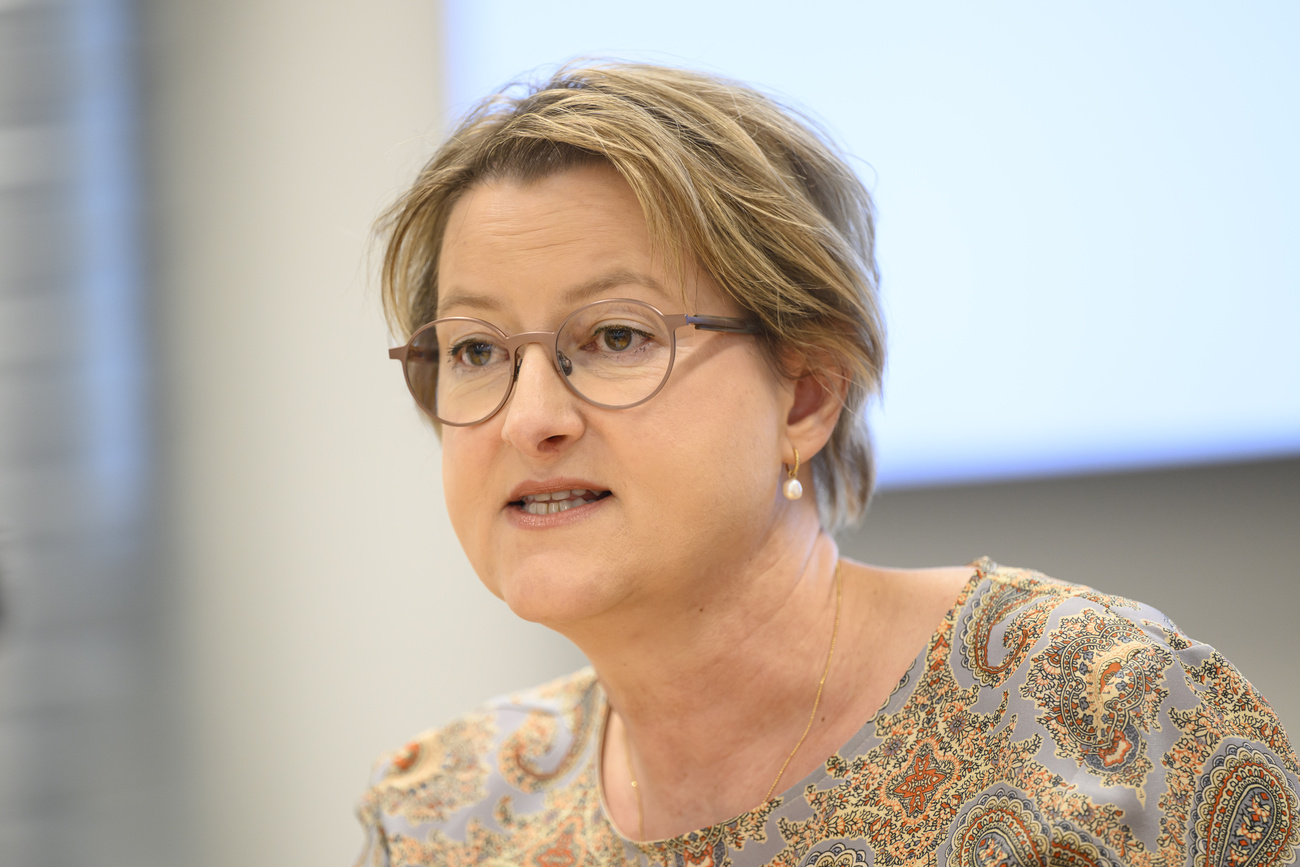
Notion of Swiss neutrality is outdated, says former diplomat

The concept of Swiss neutrality has been redundant since the end of the Cold War, according to a former secretary of state for foreign affairs.
Edouard Brunner, who served at the Swiss foreign ministry from 1984 to 1989, said Switzerland had failed to invent a new role for itself in the international arena since the collapse of the Soviet Union.
“Up to the end of the Cold War … the role of Switzerland was as a sort of mediator between conflicting powers,” Brunner told swissinfo.
“But what we did not do at the end of the Cold War was define a new role for Switzerland, because it was not needed anymore as a go-between,” he added.
The former civil servant was commenting in light of Switzerland’s recent narrow vote in favour of joining the United Nations, despite opposition from the right-wing Swiss People’s Party, which argued that UN membership would damage the country’s cherished neutrality.
Brunner argues that the whole concept of neutrality is outdated and needs to be revised.
The former civil servant was responsible for coordinating the historic 1985 Geneva summit, which saw the Soviet leader, Mikhail Gorbachev, and the United States president, Ronald Reagan, meet together for the first time to discuss the reduction of nuclear weapons.
“Meeting people like Gorbachev and Reagan … was quite an event for me,” recalled Brunner.
“This was the first summit of a new era between the United States and the Soviet Union. It was in Geneva that they started understanding themselves.”
Stuck in the past
But Brunner says the days of conflicts between individual states are long gone and Switzerland needs to redefine its own role in the global arena.
“The conflicts of today are with either terrorist organisations or inter-state ethnic conflicts like in Yugoslavia and others,” said Brunner.
“And in this type of political environment, the traditional neutrality of Switzerland doesn’t play a role anymore,” he added.
The retired diplomat says Switzerland’s greatest asset today is not its neutrality but its ethnic diversity.
“This experience of people of different language and faith who live together peacefully in Switzerland is something we should share with certain countries which have problems of this kind, like the former Yugoslavia and countries in the Caucasus.”
“We cannot export our model,” continued Brunner, “but we can certainly share some of our experiences with the leaders of these countries in order to calm down the threat of war.”
Memorable encounters
In his recently published autobiography, “Lambris Dorés et Coulisses” (“Gilded Panels and Corridors”), the former secretary of state recalls some of his most memorable encounters with world leaders who left their own individual marks on the 1980s.
Brunner recalls that the British prime minister of the time, Margaret Thatcher, was “very outspoken and very tough”.
“For instance in the negotiations with Argentina, she considered there was no give on the British side after the Falklands War … [whereas] our feeling was that it was time for reconciliation.”
Brunner, who later went on to serve as the Swiss ambassador to Washington, also describes President Reagan as a “jovial man who believed very much in what he was doing and saying”.
“But Gorbachev came across as a frightened leader of a Soviet Union which he wanted to change completely … he knew that he was embarking on a very difficult endeavour which in the end destroyed the country he wanted to change.”
by Ramsey Zarifeh

In compliance with the JTI standards
More: SWI swissinfo.ch certified by the Journalism Trust Initiative






























You can find an overview of ongoing debates with our journalists here . Please join us!
If you want to start a conversation about a topic raised in this article or want to report factual errors, email us at english@swissinfo.ch.